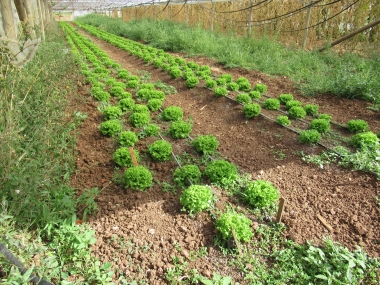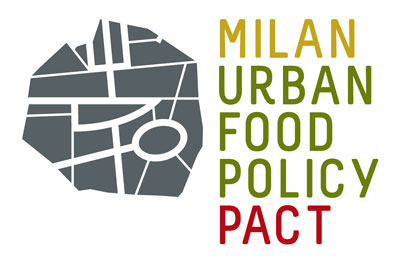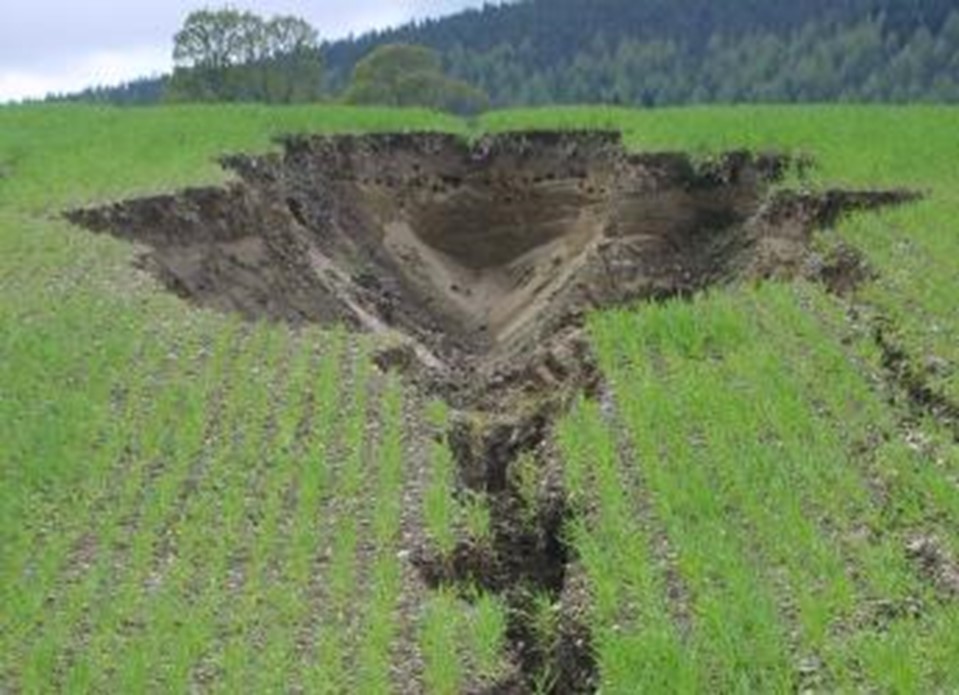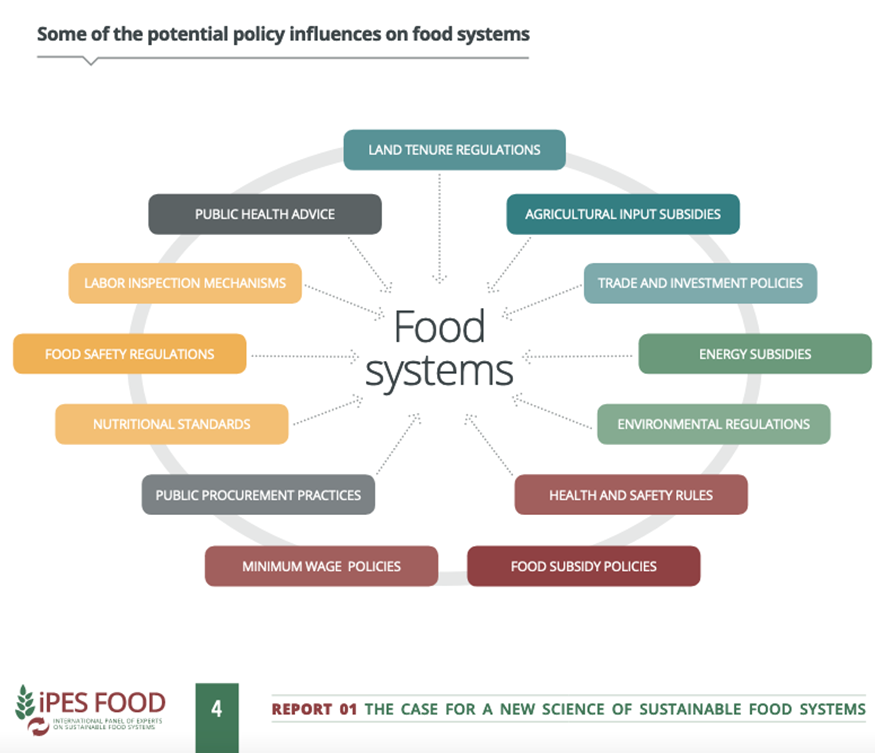Cities nurturing local food systems to fight climate change
Edited on
23 March 2022The way we produce, distribute, transform, consume food has a huge impact on GHG emissions. How can local governments intervene?

To tackle the climate emergency, we must urgently transform the conventional ways we produce, transport, eat and dispose of food worldwide. Cities are crucial drivers for this cultural, social and economic change: their residents consume 70% of the world’s food, and the policies they design and implement impact millions of people. URBACT cities and networks have understood this and are seeking to make their own contribution to the global challenge.
At the recent 7th Milan Urban Food Policy Pact (MUFPP) Global Forum in Barcelona, a team from URBACT, including the Spanish National URBACT Point, showcased examples of EU cities already making real, positive change.
Focusing on the topic of ‘Growing Resilience: Sustainable Food to Tackle the Climate Emergency,’ this event was an opportunity to (re)connect, exchange experiences, challenges, knowledge, and best practices, to inspire and get inspired with the shared goal of fixing urban food systems, while addressing the climate emergency.
In the URBACT-led session on ‘Integrated local food ecosystems to tackle climate change: URBACT’s lessons and actions’, diverse towns and cities presented their achievements in designing local food: Mollet Del Vallès (ES), partner in the URBACT networks Diet for a Green Planet and Agri-Urban; Mouans-Sartoux (FR) partner in Agri-Urban, BioCanteens #1 and #2; Milan (IT), labelled URBACT Good Practice and lead city in NEXT AGRI; and Nourish Scotland, co-coordinator of the Glasgow Food Declaration, together with IPES-Food.
The Milan Urban Food Policy Pact
 The Milan Urban Food Policy Pact, launched at the initiative of the City of Milan, at the Milan Expo 2015, has now been signed by more than 200 cities. It is an international protocol aimed at tackling food-related issues at the urban level, to be adopted by as many world cities as possible. By signing this agreement, cities not only declare their commitment, but also benefit from practical guidance including 37 recommended actions – in the areas of Governance, Sustainable Diets and Nutrition, Social and economic Equity, Food Production, Food Supply and Distribution, and Food waste. Each recommended action has specific indicators to monitor progress in implementing the Pact. The Milan Pact Awards promote examples of successful food policies that cities are implementing in all six Pact categories.
The Milan Urban Food Policy Pact, launched at the initiative of the City of Milan, at the Milan Expo 2015, has now been signed by more than 200 cities. It is an international protocol aimed at tackling food-related issues at the urban level, to be adopted by as many world cities as possible. By signing this agreement, cities not only declare their commitment, but also benefit from practical guidance including 37 recommended actions – in the areas of Governance, Sustainable Diets and Nutrition, Social and economic Equity, Food Production, Food Supply and Distribution, and Food waste. Each recommended action has specific indicators to monitor progress in implementing the Pact. The Milan Pact Awards promote examples of successful food policies that cities are implementing in all six Pact categories.
Each year now (except for 2020 because of the pandemic), a global forum organised in a signatory city is a chance for cities to exchange knowledge, build partnerships and celebrate progress in implementing improved food policies through the Milan Pact Awards. Dialogue and technical exchange among signatories are enriched by the participation of relevant international organisations and institutions.
Food on the menu
 |
Soil erosion © Europan seed |
Current food systems have strong negative impacts on climate. Production, distribution, loss and waste of food account for around 30% of global Greenhouse Gas (GHG) emissions. This in turn leads to biodiversity loss, extinction of species, deforestation, soil erosion, freshwater scarcity… At the same time, climate impacts all affect food systems: for producers affected by the lack of predictability of yields and food prices, incomes are increasingly volatile.
The distribution chain is becoming less and less reliable with strong concerns about city autonomy. All these affect rural areas’ survival. And problems have been exacerbated by the Covid-19 pandemic. Socio-economic and health inequalities are booming, with threats to food quality and food safety, with malnutrition as a key risk factor for hunger and disease.
An integrated food ecosystems approach
An ecosystem approach is key to ensuring that food provides access to healthy diets and nutrition for all, agroecology and regenerative agriculture, circular economy and the provisioning of just livelihoods. Such an approach involves understanding the range of stakeholders and complexity of their interactions; it is a crucial framework to identify, analyse and address synergies and trade-offs between various climate change responses.

Food systems © IPES-FOOD
Integration is another key competent of any transformation toward a sustainable local food system, and is vital in tackling multiple challenges such as technical gaps, behavioural changes and market failures. Integration is also embedded in the URBACT method, as follows:
- Transversality: food is linked to agriculture, trade and industry, health, labour, environment, international cooperation… All these should be taken into consideration simultaneously when improving food systems.
- Multi-actor: relevant departments from cities, regions and states covering the above-mentioned policies need to work together, as well as with stakeholders from the private, civil society and academic sectors.
- Multi-level governance mechanisms: innovations take place at the local and regional levels. They should be supported and incentivised by international and national governments.
- Territoriality: food ecosystems should be linked to each other with a strong focus on urban and peri-urban linkages. Rural areas should be further interconnected with cities of different sizes.
- Infrastructure and social innovation: combining investments in tools, products, building with experimentation and people involvement and interaction is crucial to ensure a smooth transition of all to a sustainable food system.
Several entry points for a local integrated ecosystem
Many URBACT cities are frontrunners, inspiring others to act locally for more sustainable food systems. Their actions also provide insights into various possible entry points for cities to start developing their own sustainable local food ecosystem. For example:
- Mollet Del Vallès (ES) is putting justice and health at the heart of integrated local food policies;
- Mouans-Sartoux (FR) is using school canteens to develop a resilient territory – a solution they showcased at the recent COP26; and
- Milan (IT) has developed a systemic approach for local food policies.
The message I will be taking to COP 26 this morning during the presentation of the Glasgow Declaration at the Glasgow City Chambers
— Gilles PEROLE (@gperole) November 6, 2021
Cities and citizens in action, the only chance of success in the fight against global warming! @URBACT @mufpp @fdnc_fr @IPESfood @nourishscotland pic.twitter.com/l6CGqIIYNB
Crucially at this moment, the Glasgow Food and Climate Declaration is also demonstrating that not only do we need integrated food systems to fight climate change, but also that local governments are key in this, and that this should be acknowledged by higher governance levels. There is still time for local authorities to sign!
COP26: a boost for sustainable food
URBACT cities are showing that much can be done to adjust local food ecosystems to fight climate change, based on each city’s priority, whether it’s canteens, health, governance... In addition to the three cities presented in Barcelona, the URBACT Food Knowledge Hub showcases many other inspiring initiatives for all interested cities!
Held just before the COP26 in Glasgow in November 2021, the 7th MUFPP Global Forum was strategic in raising cities’ voices on the food-climate nexus. It launched the Barcelona Challenge on Good Food and Climate: a call for cities to engage in the transformation of food systems to tackle the climate emergency, drawing on the C40 Good Food Cities Declaration and the Milan Urban Food Policy Pact Framework for Action. With URBACT represented at COP26 by various cities, including nearly all partners in the Urb-En Pact network, commitment to sustainable, integrated city solutions looks set to grow.
Cover photo © BioCanteens
 Submitted by Marcelline Bonneau on
Submitted by Marcelline Bonneau on




